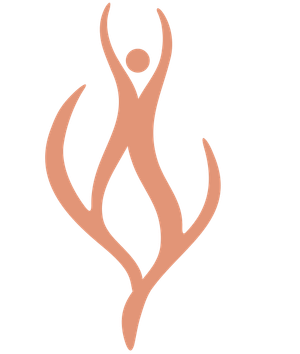As women age, their bodies go through a natural transition known as perimenopause and menopause. During this time, hormonal changes can cause a range of symptoms that can be confusing and uncomfortable. However, with the right knowledge and support, women can navigate this transition with ease and grace. In this article, we will demystify perimenopause and menopause and provide practical tips for achieving hormone harmony.
Perimenopause typically begins in a woman's 40s, but can start as early as her 30s. During this phase, the ovaries start to produce less estrogen and progesterone, leading to irregular periods and a range of symptoms such as hot flashes, night sweats, mood swings, and vaginal dryness. Menopause officially begins when a woman has gone 12 consecutive months without a period. While menopause marks the end of a woman's reproductive years, it does not mean the end of her vitality or health.
If I had to explain it to the teens in my class I would say: Perimenopause is like the warm-up phase before menopause. Think of it as your body getting ready to stop having monthly periods. This usually starts when a woman is in her 40s, but sometimes it can begin when she's in her 30s. During this time, her body starts making less of two hormones, estrogen and progesterone, which can make her periods come at unexpected times. She might also feel really hot out of nowhere, get sweaty at night, have mood changes, and feel dry down there. Menopause is the point when a woman hasn't had her period for a whole year. It's a sign that she can't have babies anymore, but she can still be healthy and do all the things she loves.
Understanding the hormonal changes that occur during perimenopause and menopause is key to managing symptoms and achieving hormone harmony. By making simple lifestyle changes, such as eating a healthy diet, getting regular exercise, and reducing stress, women can support their bodies during this transition and emerge feeling stronger and more vibrant than ever.
Understanding Perimenopause

Symptoms and Signs
Perimenopause is characterized by a variety of symptoms and signs. One of the most common symptoms is irregular menstrual cycles, which can become shorter or longer and may be accompanied by heavier or lighter bleeding. Women may also experience hot flashes, night sweats, mood swings, irritability, fatigue, and difficulty sleeping. Other symptoms may include vaginal dryness, decreased libido, and urinary incontinence.
| Symptom | Estimated Percentage of Women Affected |
|---|---|
| Irregular Menstrual Cycles | 40-50% |
| Hot Flashes | 75-85% |
| Night Sweats | 40-50% |
| Mood Swings | 20-40% |
| Irritability | 20-40% |
| Fatigue | 40-60% |
| Difficulty Sleeping | 40-60% |
| Vaginal Dryness | 20-30% |
| Decreased Libido | 20-40% |
| Urinary Incontinence | 10-30% |
Hormonal Changes
During perimenopause, the levels of estrogen and progesterone in a woman's body begin to fluctuate. This can lead to a variety of hormonal changes that can affect her physical and emotional well-being. Estrogen levels may decrease gradually or suddenly, leading to symptoms such as hot flashes and night sweats. Progesterone levels may also decrease, leading to irregular menstrual cycles and other symptoms.
In addition to these hormonal changes, women may also experience changes in their levels of testosterone and other hormones. These changes can affect their mood, energy levels, and overall sense of well-being.
Overall, understanding perimenopause is an important step in managing the symptoms and changes that women may experience during this transitional phase. By recognizing the signs and symptoms of perimenopause and seeking appropriate medical care, women can take steps to manage their hormonal changes and maintain their health and well-being.

As my grandma used to say: If you don't understand the problem don't start working on any fix. Wise woman and as any woman, never wrong #truestory
Stages of Menopause
Menopause is a natural biological process that marks the end of a woman's reproductive years. It typically occurs between the ages of 45 and 55 but can happen earlier or later. Menopause is a gradual process that happens in three stages: perimenopause, menopause, and post-menopause.
Perimenopause is the stage leading up to menopause, during which the body begins to produce less estrogen and progesterone. This can cause irregular periods, hot flashes, and other symptoms.
Menopause is defined as the point when a woman has not had a menstrual period for 12 consecutive months.The ovaries have stopped releasing eggs and producing most of their estrogen.
Post menopause is the stage after menopause, during which a woman may still experience symptoms such as hot flashes and vaginal dryness, but the risk of certain health conditions, such as osteoporosis, increases.

Managing Symptoms
Menopause can cause a range of symptoms, including hot flashes, night sweats, mood swings, and vaginal dryness. There are several lifestyle changes that can help manage these symptoms, such as regular exercise, a healthy diet, and stress reduction techniques.
There are also non-hormonal medications available for symptom management, such as selective serotonin reuptake inhibitors (SSRIs) and gabapentin. These medications can help alleviate hot flashes and other symptoms.
Hormone Replacement Therapy
Hormone Replacement Therapy (HRT) involves taking medications that contain estrogen and/or progesterone to replace the hormones that the body is no longer producing. HRT can be effective in reducing symptoms such as hot flashes and vaginal dryness, but it also carries some risks, such as an increased risk of breast cancer and blood clots.
Women considering HRT should discuss the risks and benefits with their healthcare provider to determine if it is the right option for them. HRT should be used at the lowest effective dose for the shortest amount of time possible.
To this extend I would highly recommend to work with Dr. Emi which has clearly found a recipe crafted by individual rather than bulk approach.

Nutrition and Diet
Maintaining a healthy and balanced diet is essential for women going through perimenopause and menopause. A diet rich in whole foods, fruits, vegetables, lean proteins, and healthy fats can help alleviate symptoms such as hot flashes, mood swings, and fatigue. It is also important to limit the intake of processed and sugary foods, caffeine, and alcohol, as these can exacerbate symptoms.
| Dietary Component | Recommendation | Potential Benefits |
|---|---|---|
| Whole Foods | Increase | Alleviates symptoms |
| Fruits | Increase | Alleviates symptoms |
| Vegetables | Increase | Alleviates symptoms |
| Lean Proteins | Increase | Alleviates symptoms |
| Healthy Fats | Increase | Alleviates symptoms |
| Processed Foods | Limit | Can exacerbate symptoms |
| Sugary Foods | Limit | Can exacerbate symptoms |
| Caffeine | Limit | Can exacerbate symptoms |
| Alcohol | Limit | Can exacerbate symptoms |

Calcium and Vitamin D are crucial for bone health during menopause. Women should aim to consume at least 1200 mg of calcium and 1000 IU of Vitamin D per day. Foods rich in calcium include dairy products, leafy greens, and fortified foods. Vitamin D can be obtained through sun exposure, fatty fish, and fortified foods.
Exercise and Stress Reduction
Regular exercise can help women going through perimenopause and menopause manage symptoms such as hot flashes, mood swings, and weight gain. Exercise also promotes bone health and reduces the risk of heart disease.
Women should aim for at least 30 minutes of moderate-intensity exercise, such as brisk walking, cycling, or swimming, on most days of the week.
Stress can exacerbate symptoms of perimenopause and menopause. Women should prioritize stress reduction techniques such as meditation, deep breathing, and yoga. These techniques can help reduce stress and promote relaxation.
Conclusion
There's no silver bullet for this natural condition however, adopting a healthy lifestyle can help women going through perimenopause and menopause manage symptoms and promote overall wellness. A balanced diet, regular exercise, and stress reduction techniques are all important components of a healthy lifestyle.
Until Next, Stay Vibrant! Olivia.





